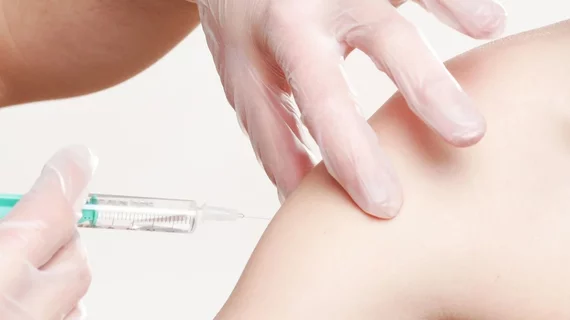5 easy actions to boost pediatric vaccination participation
One of the nastiest aspects of the COVID crisis is its possible setting of the stage for one or more pandemics to follow. The risk of such a scenario is heightened by the rate at which moms and dads are avoiding the pediatrician for routine vaccinations.
Two-thirds of parents are dragging their feet. This, despite their high rate of belief in the safety and efficacy of vaccinations: Nearly 85% buy in.
The findings are from a national survey conducted and reported by Orlando Health in Florida.
Also troubling in the health system’s research was that almost 40% of parents don’t feel their children need all the vaccines recommended by their pediatrician.
Some of the skepticism likely owes to the online communications efforts of “antivaxxers.” In any case, widespread doctor avoidance is surely not a prescription for warding off COVID-subsequent—or COVID-simultaneous—contagions.
“The only reason that we have herd immunity against so many diseases is because upwards of 90 to 95% of children are vaccinated,” comments Alix Casler, MD, Orlando Health’s chief pediatrician, in the news item. “Once we drop below that level, no one will be presumed safe.”
Casler says her practice has set up protocols to keep young patients and their parents as safe from COVID as possible.
The steps they’re using include five that are easily replicated by other pediatric practices:
- Implement COVID-19 screenings.
- Inform and educate patients as well as parents.
- Remind parents of upcoming appointments.
- Have families wait in their cars rather than a waiting room.
- See one family at a time.
“All it will take is a case of measles entering our community and we will see loss of life that is completely and totally unnecessary” Casler says. “Measles and whooping cough outbreaks are a thing of the past thanks to vaccines, and we’d like to keep it that way.”
The news item also quotes the mother of a 5-year-old who’s more than ready to start kindergarten. The mom, Cynthia Velasco, was concerned social distancing may have made the child susceptible not only to COVID buy any contagious illness.
Velasco says her pediatrician allayed the worries with reminders on vaccinations and a back-to-school wellness appointment.
“[B]ecause I know our pediatrician’s office is taking steps to keep their office safe,” she adds, “staying up to date on his vaccinations far outweighs the risk of getting sick at that appointment.”

